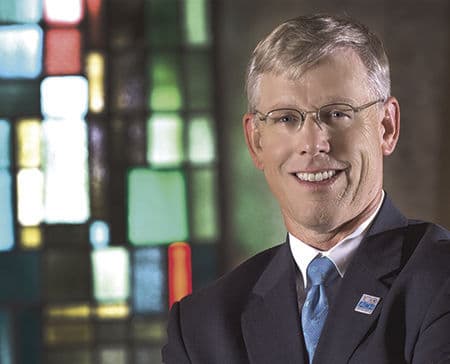John Wright of Simple Leadership Strategies in Fort Worth is interviewing individuals in top leadership roles in the area. He recently shared his interview with Wayne Carson, CEO of ACH Child and Family Services.
Carson has 30 years of experience working with children and families, the last 18 years as CEO of ACH. With a focused mission to “protect children and preserve families” and with a staff of 300, ACH operates 14 programs in several counties providing a range of services that both prevent and treat child abuse, neglect, homelessness and family separation.
Carson has led substantial growth for ACH in response to community need: In 2018, the agency served 4,698 children and families, up from 300 in 2010. In 2014, he positioned ACH as the state’s first urban implementation of community-based care, bringing much-needed improvement to some of the chronic problems in Texas’ foster care system. When his vision delivered improved outcomes, he championed the approach as the model for state-wide foster care redesign and inclusion in Texas Senate Bill 11. The bill was signed into law in 2017 and, thanks in part to the pioneering efforts of ACH, the Texas Department of Family and Protective Services is beginning to replicate the community-based care model throughout the state.
Carson holds a bachelor’s degree in civil engineering from the University of Missouri-Rolla and master’s and doctorate degrees in social work from the University of Texas at Arlington. He serves on the board of the Mental Health Connection of Tarrant County and is president of the Texas Alliance for Child and Family Services in Austin. Carson was recognized as a Distinguished Alumni of the University of Texas at Arlington in 2009 and Not-for-Profit CEO of the Year by the Fort Worth Business Press in 2015. In 2019, he received a Founder’s Award from Texans Care for Children, an organization driving policy change to improve the lives of Texas children. He is the father of three and has been married to his wife, Vickie, for 30 years.
Wright: Is there such a thing as a bad boss?
Carson: Yes. It probably differs from one person to the next but what a bad boss looks like to me is someone who does not trust me, does not allow me to do my job, doesn’t communicate clear expectations, is not consistent, does not care about my success. That would not work for me.
Our workforce requires a different way of managing than, say, the military where people need to respond immediately without question. We have to have a workforce that questions things and shows leadership and is very comfortable voicing concerns. If they see a child they think is in danger or if they have concerns about decisions being made for a child, we need a workforce that feels comfortable expressing those concerns and then we need a system that responds to those concerns. We see a need to have leadership at every level of the organization.
Can someone be an effective, efficient manager and still not a leader?
Yes. We need good managers. We need people who know how to supervise people and run a program. The way we’re designed, we expect everyone in the organization to show leadership skills. We define what leadership competencies look like at every level of the organization. Maybe my answer is no. There are management skills that are very important that I differentiate from leadership skills, and we need people that are much stronger in management skills than leadership skills because I think if you have a bunch of leaders then nothing ever gets done. An element of leadership is important in every position here.
What qualities make a leader that a manager might not possess?
One: people should follow them because they want to, not because they have to. Other things come out of that: integrity, honesty, subject matter knowledge; consistency and the ability to show that they care about the success of those following them; compassion.
Gallup reports that 70% of Americans are disengaged at work and this number has barely budged in over a decade. How do you engage your team?
I think that’s sad. In our world what moves people beyond just showing up and caring about what they do is helping them understand how what they do makes a difference.
It’s a little easier for us to do that sometimes because if you are working with a kid that was on the streets and are looking for a safe place to be, it’s pretty clear to see how you are making a difference in the life of that child. The farther you get away from the direct care work the harder it is to see that.
Another critical element is making sure people know that what they do to make a difference is appreciated by the organization. Recognition and appreciation is critical. You can bust your hump all day long, but if no one says “great job” or “you really made a difference for that kid” then it’s hard to keep that self-motivation going.
A third one that often gets put on the back burner in the nonprofit world is financial recognition. You can’t just live on recognition and sense of accomplishment. In the nonprofit world there tends to be this attitude that people don’t need to get paid for this work because they’re doing it for their heart. We struggle with paying fair wages and benefits. We’re being asked to solve some of the greatest problems mankind knows and we are being graded on what our overhead percentage is. We should be graded on outcomes. For-profits are not graded on overhead but profits and impact. That’s how a not-for-profit should be graded as well.
John Wright, CSL, is president of Simple Leadership Strategies in Fort Worth. www.simpleleadershipstrategies.com






